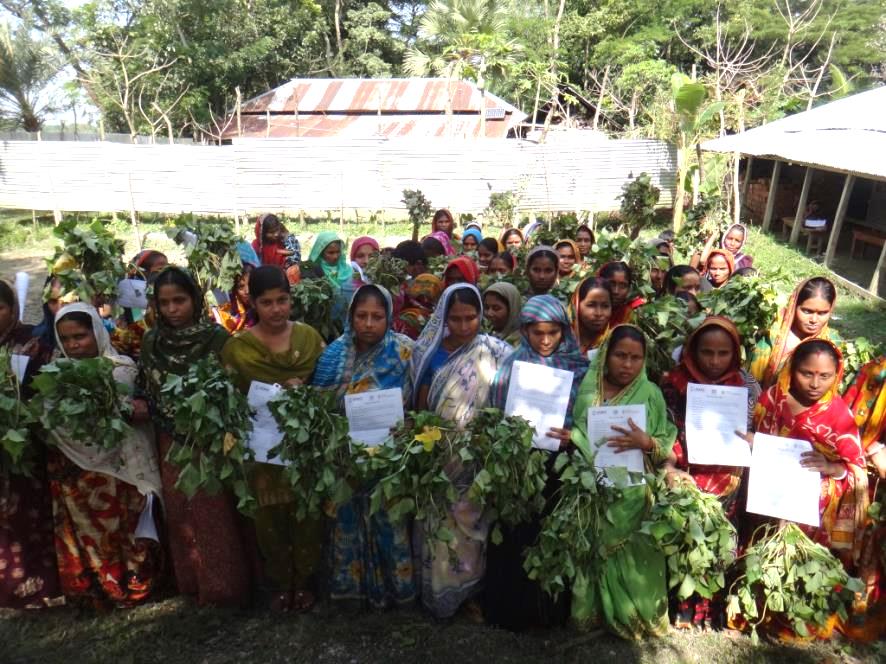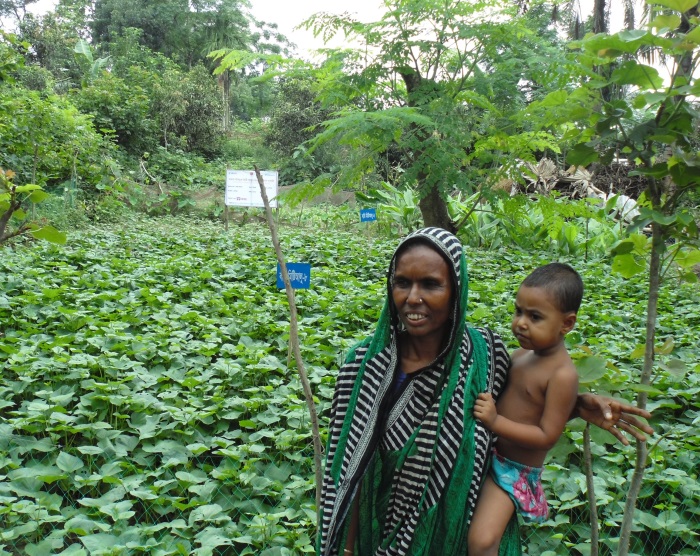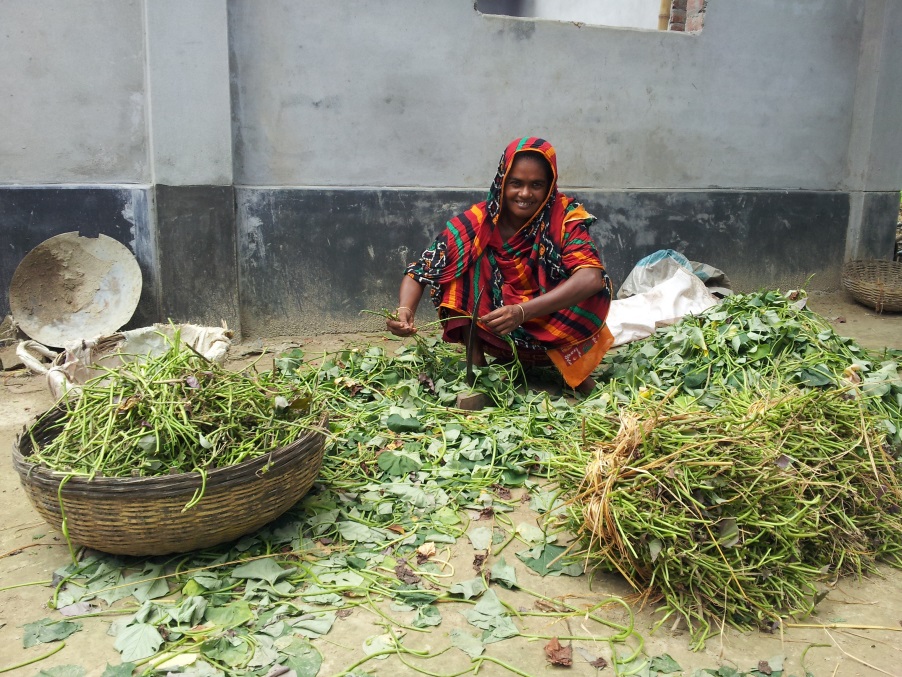Bangladesh’s unequal land inheritance law and patriarchal society leave most rural women extremely poor and marginalized. The USAID-funded Horticulture Project, which began in October 2011, pursues the ambitious goal of improving the income and nutritional security of 100,000 households in Southern Bangladesh. While the project works with both men and women, several components are specifically targeting women.
The four-year project, which CIP is implementing in collaboration with the World Vegetable Center (AVRDC), focuses on the production, consumption, and sale of potatoes, sweetpotatoes, and target vegetables, as well as the sale of planting materials. As vitamin A-rich orange-fleshed sweetpotato (OFSP) is a key crop for improved nutrition, the project chose OFSP vine multiplication at homestead gardens and nurseries as a key activity to engage women farmers.
“I believe the sweetpotato has huge potential to contribute to the poorest households, since it can be grown in tiny plots and it doesn’t require a lot of labor”, explained Shawkat Begum, the Chief of Party at CIP Bangladesh. As of September 2013, the project has trained 7,706 women – 7,381 at their homestead lands and 325 at nurseries. All participants received training on vine propagation and nursery establishment with the objective of establishing a seed system with quality planting materials, promote supply of nutritious leafy vegetables, and earn the women additional income that their families need through the sale of vines and roots.

Participants receiving vines after the training
“I earned BDT 12,000 (US$156) in seven months,” 50-year-old Joygun told Begum last May at her home in Chougacha Upazila, Jessore District. “With the money I bought a goat, household items, and I even saved a little,” she explained proudly. But Joygun’s successful experience with vine propagation does not end here. By starting her own business, she has earned the respect of her community, and more importantly, she has reduced her dependency on her son and daughter-in-law. “They don’t see me and my husband as a burden anymore; I can help them and spend on my grandchildren.” Joygun is planning to rent more land for root crop production in the upcoming season.

Joygun in front of her nursery
A change in husbands’ attitudes is key to ensuring that the enterprises that women create continue after the project ends. “Now my husband sees that I can also earn money for my family”, said Jahanara, whose husband Mizanur Rahman manages a small plot of land and a grocery shop. She was trained in OFSP vine multiplication and nursery establishment, and she appreciates the nutritional value of the orange-fleshed sweetpotato. “We used part of the money I earned to buy a real bed, and items for the grocery store”, she explained. She has become a knowledge broker in her community, telling neighboring mothers about the nutritional benefits of OFSP leaves and roots. Furthermore, sweetpotato-leaf curry has become popular on the community, and a common dish in Jahanara’s family.

Jahanara cutting her vines to sell to farmers
“The impact on the lives of these women is tremendous”, explains Shawkat Begum. The nurseries have earned them respect and identity in their homes and communities. “This simple technology has brought about several life-changing benefits. These include ensuring nutritious food for their families, increasing their access to productive resources, facilitating their economic empowerment, and improving their status in the community”.
